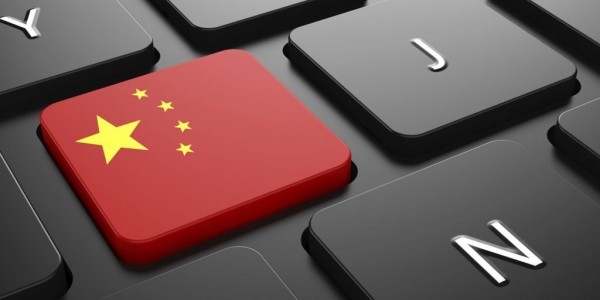Review №22 on Chinese Antitrust News from BRICS Antimonopoly Centre Experts
- Listening to people online
- 6 draft antitrust rules
- Coal Price Check
- Internet user account management rules - Campaign to expose illegal fees
- 5 Chinese companies blacklisted by the US
- 155 projects open for private investment
- Platforms declared their social value
- Completed cybersecurity review of 3 applications
- Advice on contracts for the export of personal data
- Penalties for anti-competitive agreements
- Taiwan Digital Services Act
Listening to people online
Chinese President Xi Jinping stressed the importance of better listening to the voice of the people through the Internet and other channels. He added that it is necessary to increase respect for public opinion and follow the aspirations of the people. According to the chairman, collecting public opinion through online platforms is an effective way for the entire party and the public to contribute to the development of the country and the rejuvenation of the Chinese nation, and is also a vivid embodiment of people's democracy in the whole process.
Source: Russian.people
6 draft antitrust rules
Immediately after the adoption of the first-ever amendments to the Antimonopoly Law of the PRC, six draft related regulatory documents were posted on the SAMR website for public consultation. The package includes draft rules for consideration of economic concentration transactions, rules on the prohibition of abuse of a dominant market position, on the prohibition of anti-competitive agreements, on the prohibition of the abuse of intellectual property rights to eliminate or restrict competition, on the prohibition of the abuse of administrative powers to the detriment of competition, as well as a draft new version of the Rules of the State Council of the People's Republic of China on the criteria for notification of economic concentration transactions. The old version of the Rules of the State Council has been in force since 2008 and will now be adapted to the new economic conditions. The main changes affected the turnover criteria: the total global turnover, the total turnover in China and the turnover of one side of the transaction in China from 10 billion, 2 billion and 400 million Chinese yuan were increased to 12 billion (≈$1.9 billion), 4 billion (≈$600 million) and 800 million (≈$120 million), respectively. It is also necessary to file a petition during the transaction, if one of the parties has a turnover in China of more than 100 billion yuan (≈$15 billion), and the other party has a market value of at least 800 million yuan (≈$120 million) and the turnover in China is more than 1/3 of the global. As Jingsh Law Firm comments for SCMP, this innovation is aimed at the takeover of startups by Internet giants.
Coal Price Check
SAMR's Price Control and Competition Division launched a fossil coal price review. The review will run from June to September, but the agency will also work to establish a long-term monitoring mechanism to track developments on an ongoing basis. The department will strictly crack down on price gouging. Cases related to market disruption through the dissemination of information about incorrect prices, excess stockpiling, price increases without a noticeable increase in costs, unjustified fees, etc. will be considered in accordance with the Law on Prices and the recently adopted Guiding opinions on price gouging.
Source: SAMR
Internet user account management rules
The Cyberspace Administration of the People's Republic of China has published the Rules for Managing Internet User Accounts, which will come into force on August 1. They are aimed at creating a regulatory system that allows for strict identity verification, verification of personal data, as well as guaranteeing content security and effective management of the "ecology" (environment) of the Internet space. Representatives of the Administration noted that they observe cases of creation and dissemination of false information, cyberbullying, and this threatens both national security and public interests. The rules require users to guarantee the authenticity and accuracy of the personal data provided, and Internet service providers to verify and display the location by IP address on personal pages.
Source: News.cn
Campaign to expose illegal fees
From June to November, SAMR will run a themed campaign to eliminate illegal business fees. Removing the requirement for unauthorized contributions will help reduce the pressure on market participants, especially SMEs and individual entrepreneurs. Under the slogan of “zero tolerance”, fees collected in the field of logistics, water, electricity and gas supply, finance, as well as the activities of industry associations and intermediaries will be inspected. The campaign includes, among other things, self-examination and independent elimination of violations in certain industries. Penalties will be applied to violators. The public is invited to implement social supervision and apply to the hotline about detected violations.
Source: SAMR
5 Chinese companies blacklisted by the US
Citing Reuters, Chinese media reported that 5 Chinese companies were blacklisted on suspicion of supporting the Russian military and defense industry. This means that their US suppliers can only export their goods to them with the permission of the US Department of Commerce. To this, the Chinese Embassy in the United States stated that China does not provide military assistance to any of the parties to the conflict, and China and Russia only maintain regular cooperation in the field of energy and trade. The official representative of the Ministry of Commerce of the People's Republic of China, Shu Jueting, also said that such measures, in fact, are a policy of unilateralism, protectionism and bullying and represent typical economic coercion. Such actions seriously undermine the international trade and economic order and rules of trade, jeopardizing the stability of global value chains.
Sources: The paper, Russian.people
155 projects open for private investment
The Beijing City Government has opened 155 key projects for private investment, amounting to more than $21 billion, a record number of projects and the largest amount of investment for the private sector in the past five years. Of these, 43 projects are related to technological innovation, high-tech manufacturing and modern services. The government welcomed the participation of private companies in financing infrastructure and urban development projects.
Source: China.org
Platforms declared their social value
Alibaba CEO Daniel Zhang published an article on the social value of the corporation in the official publication of the Cyberspace Administration of China. The article says that Alibaba's innovation path can be divided into three stages: from building infrastructure for online commerce to cloud computing, and finally to applying technology for the benefit of society. For example, when the pandemic began, the company in just 7 days developed the so-called. health code. Until 2025, Alibaba plans to invest 100 billion Chinese yuan (≈$15 billion) in technological innovation, economic development, quality employment and caring for vulnerable people. At an online conference, Tencent Senior Vice President Stephen Ma, in turn, emphasized the social significance of the company's gaming division. According to him, based on gaming technologies, non-gaming products, such as cultural or technological products, can be developed that will directly help modern society and solve its pressing problems.
Completed cybersecurity review of 3 applications
Recruitment platform Boss Zhipin, logistics service apps Yunmanman and Huochebang have resumed new user registrations. Registration has been unavailable since July last year, when the PRC Cyberspace Administration began their cybersecurity review, about a month after the IPO of the operator companies on the US exchange. A similar check is still underway for the DiDi taxi service - registration is not yet available in its application. #
The companies stated that they provided all necessary assistance during the audit and took the identified problems seriously. They pledged to ensure the security of their platform infrastructure and big data, and to protect national security.
Source: Weixin
Advice on contracts for the export of personal data
Until June 30th, the Cyberspace Administration of China is holding public consultations on the draft Rules on the template of contracts for the export of personal data. The Rules state that personal data processing operators can export them under a standard contract if they:
1) are not the operator of the key information infrastructure;
2) process personal data of less than 1 million people;
3) since January 1 of the previous year, less than 100 thousand people have exported personal data and less than 10 thousand people have exported sensitive personal data. At the same time, before export, it is necessary to carry out an assessment of the impact on the protection of personal data, where to confirm the legality and necessity of the purposes, volumes and method of export, as well as the type and degree of sensitivity of the exported data.
Source: China.news
Penalties for anti-competitive agreements
One of the fines was received by six companies producing seals: they signed an agreement to fix prices for various types of their products. The market regulator of Yunnan Province found a violation of paragraph 1 of Art. 13 of the Antimonopoly Law: “Agreements on setting or changing prices for goods are prohibited between competing participants in economic activity” and clause 1 of Art. 7 of the Interim Rules on the Prohibition of AntiCompetitive Agreements: “Anti-competitive agreements on setting or changing the price level, the amplitude of price fluctuations, the level of profit, discounts and commissions are prohibited between competing entities.” The total amount of recovery, including the fine and the seizure of illegally obtained profits, amounted to 363 thousand yuan (≈$54 thousand).
A similar violation was found in Jilin province between 11 vehicle inspection companies: they agreed on a minimum cost for vehicle inspection, rules for revenue sharing, and a penalty for violating or withdrawing from the agreement. The amount recovered was 215,000 yuan (≈$32,000).
Source: SAMR
Taiwan Digital Services Act
Taiwan's National Communications Commission has approved the Draft Act on Intermediary Digital Services. Online platforms with more than 2.3 million active users may be classified as "special online platform operators" and require the disclosure of recommender algorithms. Digital platform operators will also be required to publish a detailed transparency report, which should include consumer complaints. They will also have to prevent the re-posting of illegal content and disclose information about merchants and advertisers.
Competition protection in Taiwan is handled by the Fair Trade Commission. The agency is currently processing comments received on the draft white paper on competition policy in the digital economy.
Sources: Taipei times, FTC




